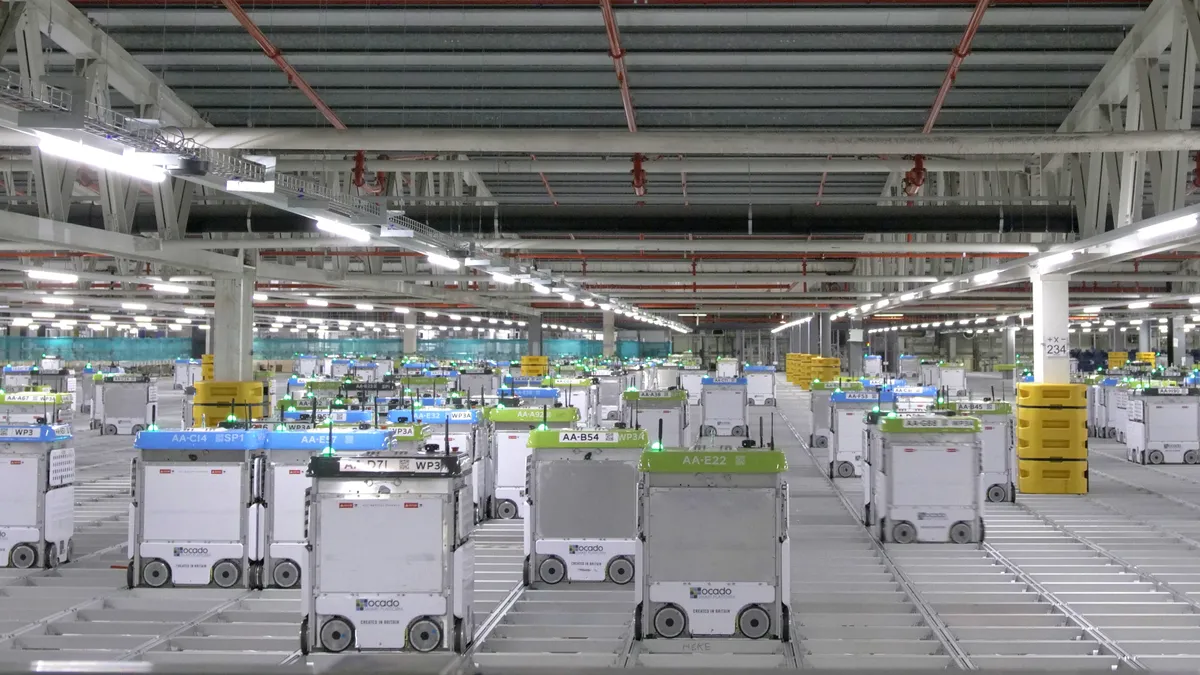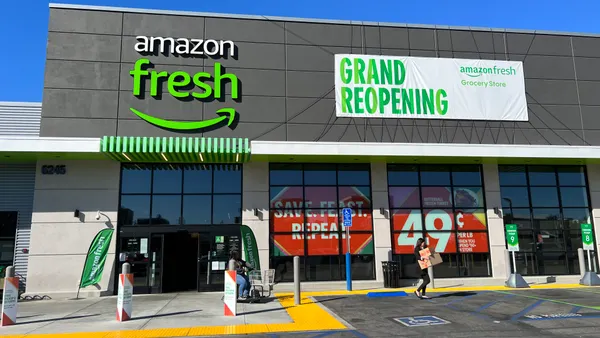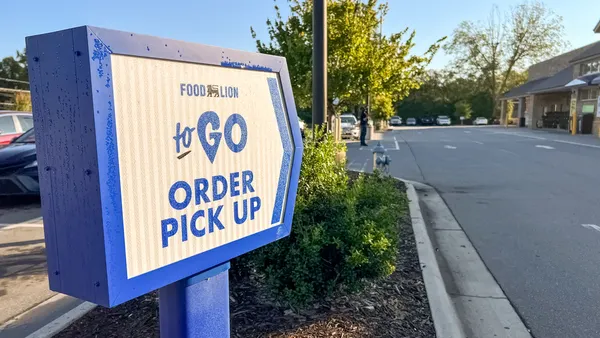Dive Brief:
- Kroger stock was downgraded from a buy to a hold by analysts at equity research firm Jefferies Thursday morning, according to a note emailed to investors.
- The firm cited Kroger’s partnership with Ocado as a concern and a "misstep when compared to micro-fulfillment," the analysts wrote. Jefferies’ analysis shows that each Ocado shed could take about four years to turn a profit and return limited market share gains.
- Additionally, despite Kroger's recently improved comps, Jefferies said it sees no drivers for notable comp progress in fiscal 2020.
Dive Insight:
After committing hundreds of millions of dollars to build automated fulfillment centers with Ocado, a downgrade from investors is not good news for Kroger, especially with the grocer’s investor day coming up in November.
Following a proprietary analysis of online grocery fulfillment and extensive conversations with industry contacts, Jefferies analysts expressed concern over the time it will take to build each shed, and the ultimate value each facility will offer against competing solutions — in particular micro-fulfillment facilities, which have begun testing with grocers and promise hundreds of locations over the next few years.
"Unfortunately, details are lacking from [Kroger] concerning this agreement, including minimum capacity requirements, fee structure, and other assumptions that drive [management’s] expectation of a positive ROI by [year three]," analysts wrote.
The drawbacks to Ocado sheds include the ability to offer speedy delivery, which Jeffries says will be difficult given their location outside major metro areas. The analysts noted that, with a price tag of around $55 million each and a two-to-three-year buildout timeframe, the fulfillment centers are an expensive, time-consuming model that pose risks as e-commerce innovation rapidly evolves.
Micro-fulfillment is the superior alternative, according to the firm. Micro-fulfillment centers are more efficient and cost-effective to build and take up far less space, making it possible to plant them in a variety of locations close to consumers.
Fabric, formerly CommonSense Robotics, is testing micro-fulfillment underground in Tel Aviv. Takeoff Technologies operates several micro-fulfillment centers with grocers like Ahold Delhaize, Albertsons and ShopRite. Farmstead relies on micro-warehouses in city centers to serve its shoppers. And Meijer just announced its first micro-fulfillment center with Dematic.
Walmart, increasingly a Kroger competitor, is also testing micro-fulfillment, and is positioned to win if it scales the technology, Jefferies noted.
"Assuming [Walmart] scales the [micro-fulfillment] offering and proves out economics, this should only increase its ability to play offense," analysts wrote.
As these grocers accelerate their e-commerce operations with micro-fulfillment, Kroger could fall behind. Still, chapters are still being written in the Kroger-Ocado saga. Both companies are currently testing rapid delivery, for instance, indicating speed-of-service and flexible fulfillment are top-of-mind.














